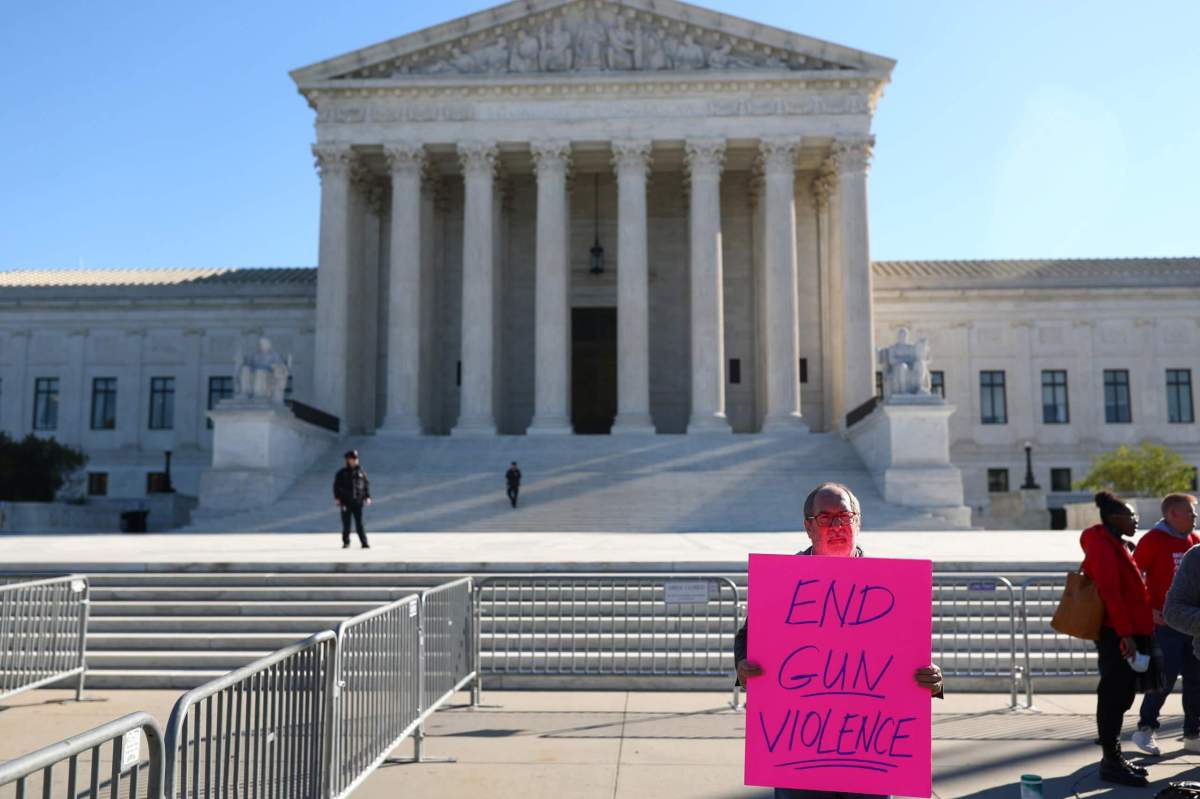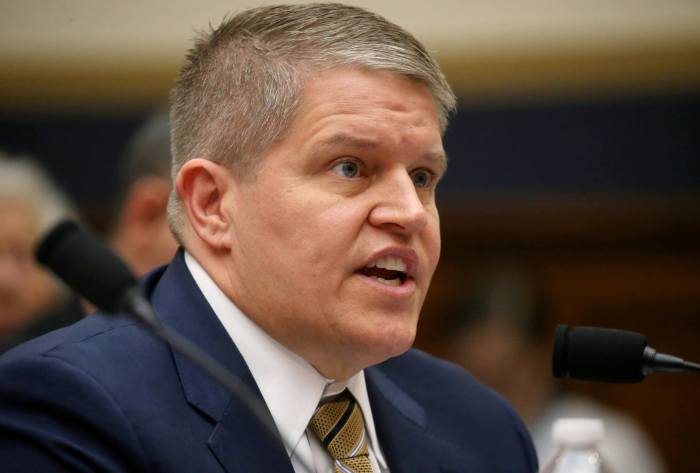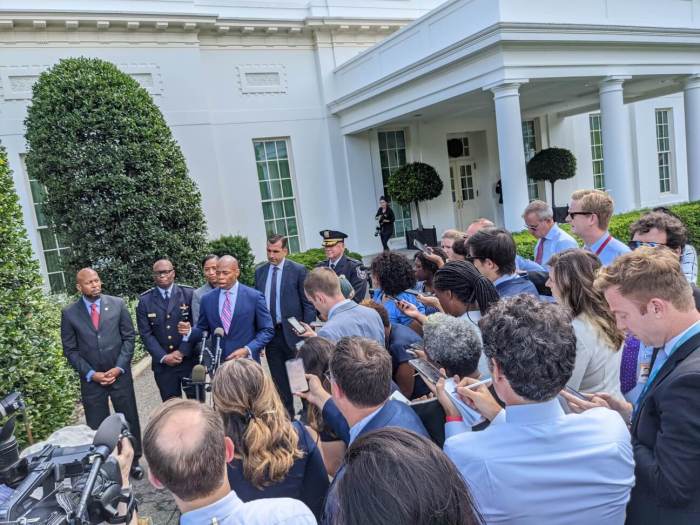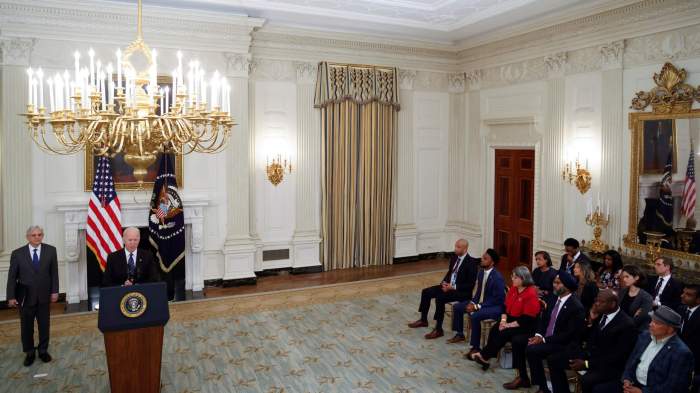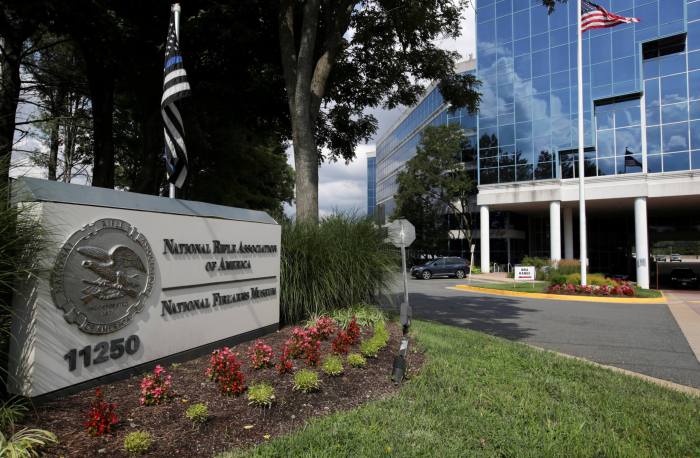Conservative U.S. Supreme Court justices on Wednesday appeared willing to strike down New York state’s limits on carrying concealed handguns in public in a major firearms rights case that could imperil certain restrictions nationally.
The justices heard about two hours of arguments in an appeal by two gun owners and the New York affiliate of the National Rifle Association, an influential gun rights group closely aligned with Republicans, of a lower court ruling throwing out their challenge to the state’s law, enacted in 1913.
Lower courts rejected the argument by the plaintiffs that the law violates the U.S. Constitution’s Second Amendment right to keep and bear arms. The lawsuit seeks an unrestricted right to carry concealed handguns in public.
The Supreme Court’s 6-3 conservative majority is considered sympathetic to an expansive view of Second Amendment rights.
New York’s law requires applicants to state a specific reason for needing a gun for self-defense.
“Why isn’t it good enough to say ‘I live in a violent area and I want to defend myself?'” conservative Justice Brett Kavanaugh asked.
Conservative Justice Samuel Alito wondered why only “celebrities, state judges and retired police officers” should be able to carry concealed guns as opposed to “ordinary, law-abiding” citizens.
Conservative Chief Justice John Roberts raised doubts about New York’s practice of giving unrestricted licenses more freely in more rural areas compared to densely populated centers like Manhattan given that the Second Amendment has been found to protect the right to self-defense.
“How many muggings take place in the forest?” Roberts asked New York Solicitor General Barbara Underwood, who was defending the law.
Underwood highlighted the need to regulate concealed guns to promote public safety, noting that the prospect of proliferating firearms in the New York City subway system “terrifies” a lot of people.
Conservative Justice Samuel Alito pushed back on her argument, contenting that there are people with illegal guns already on the subway and other public areas. “But ordinary hard-working people … they can’t be armed,” Alito said.
New York’s law requires a showing of “proper cause” for carrying concealed handguns. To carry such a weapon without restrictions, applicants must convince a state firearms licensing officer of an actual, rather than speculative, need for self-defense.
A ruling striking down the New York law would lead to new legal questions in the future including how local governments can regulate firearms in sensitive places such as government buildings, public transit, sports stadiums, schools, universities, sites of protests and drinking establishments.
Paul Clement, the lawyer for the challengers, said prohibitions at government buildings and schools probably would pass muster but others would have to be examined on a case-by-case basis.
Some justices voiced concern about whether a ruling against New York might restrict states and localities from imposing prohibitions at sensitive locations. Conservative Justice Amy Coney Barrett wondered about New York City’s massive annual celebration in Times Square on New Year’s Eve.
‘GUN-RELATED CHAOS’
The court’s three liberals signaled concern about expanding gun rights.
Noting that guns can be dangerous, liberal Justice Stephen Breyer said there could be situations in which even people of “good moral character,” including inebriated fans at a packed sports event, could “end up dead.” Breyer challenged the lawyer for the challengers on what the court should do to “not produce a kind of gun-related chaos.”
The case could yield the most important gun rights ruling in more than a decade. The court in 2008 recognized for the first time an individual’s right to keep guns at home for self-defense, and in 2010 applied that right to the states.
After being denied unrestricted concealed-carry licenses, gun owners Robert Nash and Brandon Koch, along with the New York State Rifle and Pistol Association, sued in federal court.
New York has justified its law by arguing that analogous restrictions run from medieval England through the founding of the United States and ever since.
Advocates for gun restrictions fear that the New York case could threaten other state and local measures such as “red flag” laws targeting the firearms of people deemed dangerous by the courts, expanded criminal background checks for gun buyers or restrictions on selling untraceable “ghost” guns.
Eight states including New York empower officials to decide whether people can carry concealed handguns in public even if they pass criteria such as criminal background checks. New York has said that about two-thirds of applications for unrestricted permits are granted in the state, amounting to tens of thousands annually.
Gun rights, held dear by many Americans, are a contentious issue in a nation with high levels of firearms violence. President Joe Biden has called gun violence a “national embarrassment.”
The Supreme Court’s ruling is due by the end of June.



